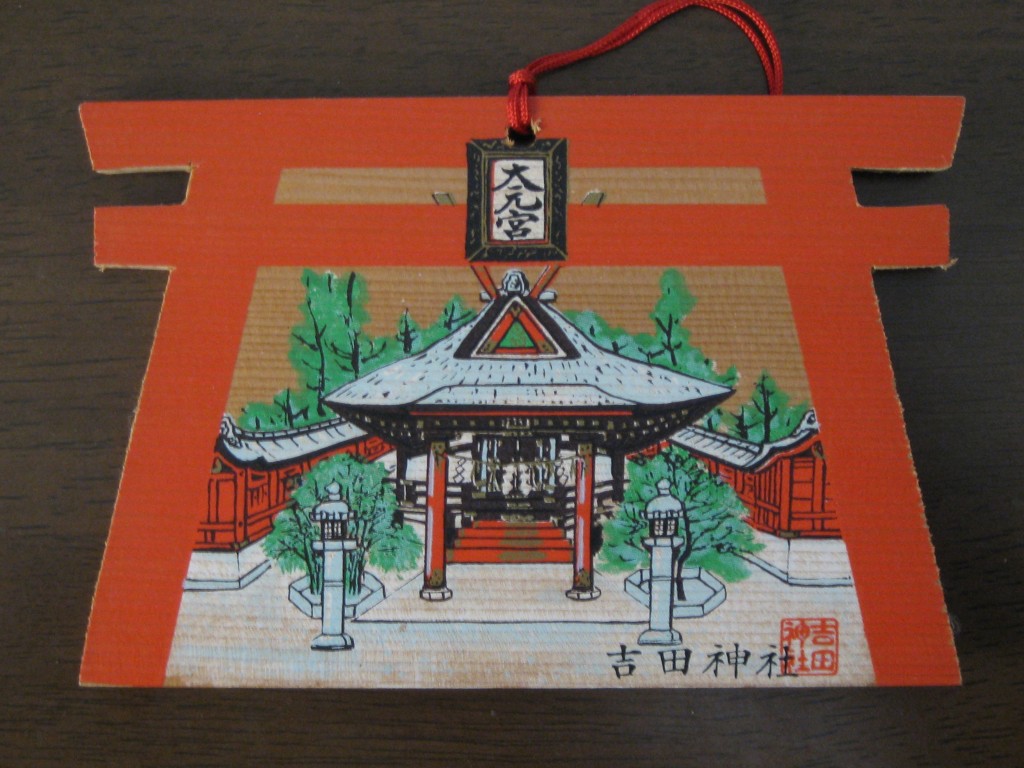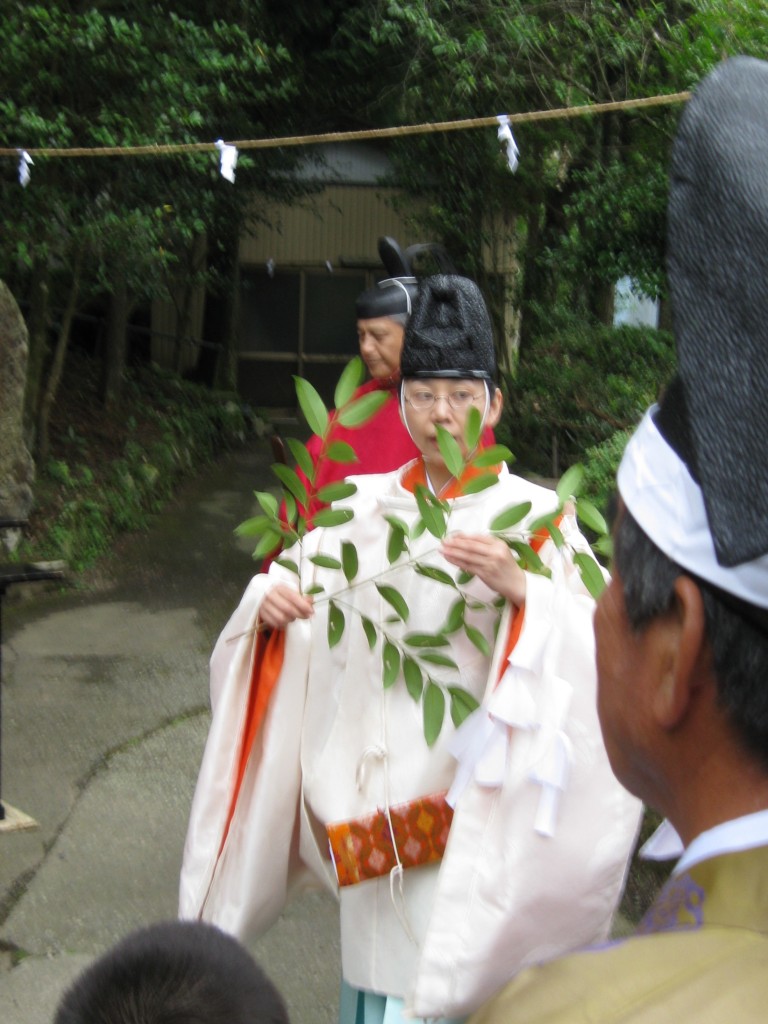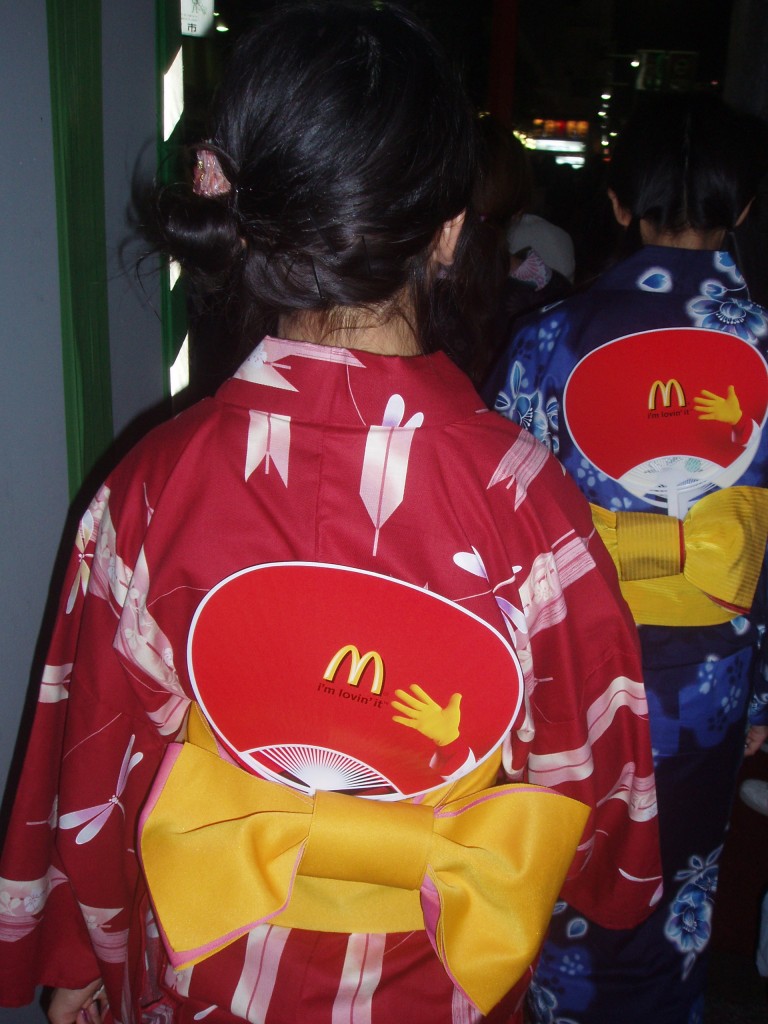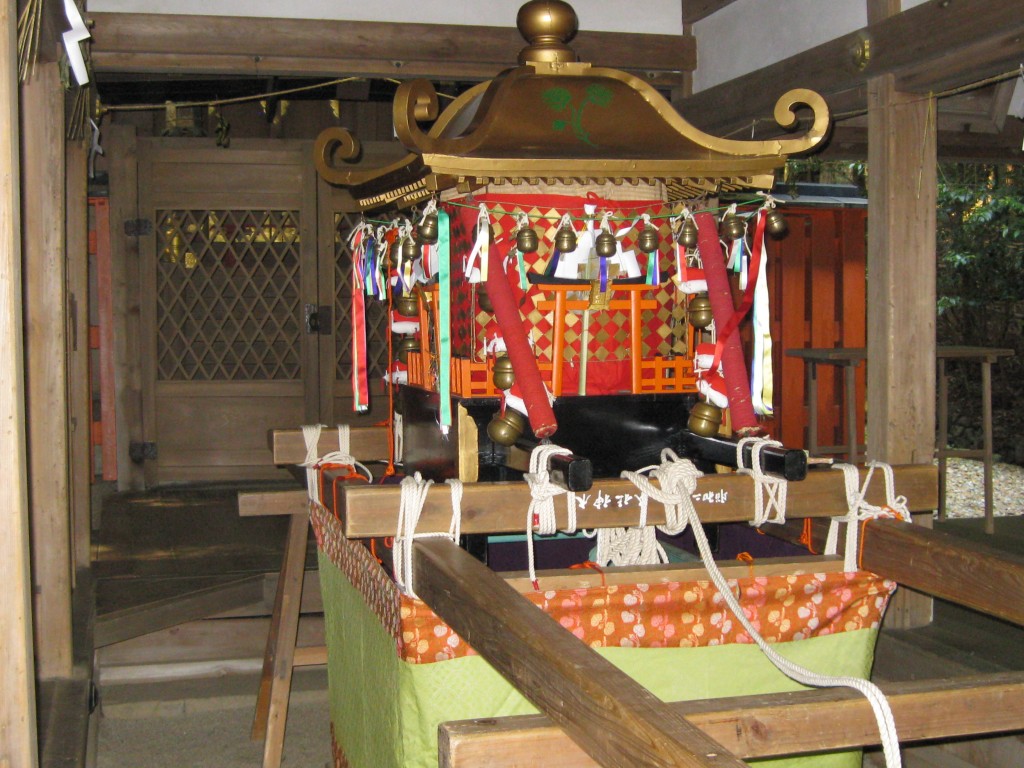
Ema, or votive tablet? And is it showing a jinja or a shrine??
An article in today’s Japan Times raises the important point of whether terms like kami, matsuri and jinja should be translated when writing in English, or should they be left as they are as technical terms. There are valid arguments on both sides, I think, since accessibility is as much an issue as preserving the Japanese concepts. Perhaps a useful practice for the foreseeable future would be a compromise along the lines of kami (deity or spirit) until the new terms come to be fully accepted…
************************************************
Shinto’s kami and jinja seeking world acceptance
BY MINORU MATSUTANI JAPAN TIMES JUN 3, 2013
The word of god: Officials at Ise Jingu hope to encourage English speakers to use the Shinto terms kami, matsuri and jinja rather than their translations, deity, festival and shrine.
Ise Jingu has recently published a booklet in English, titled “Soul of Japan — An Introduction to Shinto and Ise Jingu.” The news was picked up by some Japanese media because the shrine used, for the first time, words such as kami (God or deity), matsuri ( festival) and jinja (shrine), rendering them untranslated in romaji, instead of using their English equivalents.

Priestess or kannushi? And, a teaser for translators, she's carrying a 'tamagushi'
Ise Jingu and Jinja Honcho (Association of Shinto Shrines) co-published the booklet in April. Their aim is to make Shinto-related words such as kami known to the outside world, just as judo and ninja already are.
While it is doubtful that jinja will suddenly be erected in Europe or that anime featuring kami and matsuri will be aired on Saturday-morning cartoon programs, Ise Jingu’s priests thinks that the time is ripe.
“(The word) Shinto has already become known. It is time for us to proactively transmit other words related to jinja and Shinto so their meaning can be widely understood,” an Ise Jingu spokesman said.
The booklet “Soul of Japan” says that a deity is a god in a polytheistic belief system, and thus deity is a somewhat appropriate translation of kami. However, Ise Jingu and Jinja Honcho want to differentiate kami from the deities of other religions.
“It’s not wrong to say kami are Shinto deities. But a deity is not a very common word, and we thought using the word kami was more appropriate. So we may as well spread the word ‘kami,’ and want people in the world to know kami as kami,” the spokesman said.
Moreover, in explaining to Japanese people what God or a deity is, we probably have to use the world kami because there is no other better Japanese word. To clarify the difference between God and a deity in Japanese, you basically need to say that God is monotheistic and that a deity is polytheistic.
After Ise Jingu and Jinja Honcho published the booklet, all other jinja in Japan will probably follow suit because the two bodies are effectively the official organizations for jinja.

All dressed up, complete with MacDonald's fan, for Kyoto's Gion Matsuri - or should that be the Gion Festival?
Following the move, the city of Ise in Mie Prefecture changed its traffic signs in line with the English description of the booklet.
The booklet explains that Shinto teaches that there are kami in the mountains, forests and other things. There are yaoyorozu no kami (8 million kami), as a saying goes. Mountains and forests are the origin of jinja, the booklet explains.
Kami derived from nature, such as the kami of rain, the kami of wind, the kami of mountains, the kami of the sea and the kami of thunder have a deep relationship with our lives and profound influence over our activities. Individuals who have made a great contribution to the state or society may also be enshrined and revered as kami, according to the booklet.
The booklet also shows with text and drawings how to perform temizu ( purifying one’s hands and mouth with a wooden dipper before approaching the main sanctuary of a shrine, basically the act of washing hands and gargling) and the etiquette when praying to kami. Shrines usually have stone water basins for temizu.
Linguistic experts also say that such Japanese-English words tend to be adopted if they are something appealing to sight, or something you can actually experience. For example, the words “anime” and “manga” are now used worldwide because people can watch and read them. And the Japanese word “tsunami” became a universal word after the English term “tidal wave” failed to correctly describe the horrors people saw after the 2004 Indian Ocean tsunami.
It is unknown if kami and jinja will reach the same level of recognition as ninja and judo. But those words will certainly spread little by little if Shinto kankeisha (people involved in the world of Shinto) continue to spread their gospel.

A mikoshi at Ota Jinja in Kyoto - or should that be a portable shrine at Ota Shrine in Kyoto?

Here’s a copy of the booklet.
http://www.sengu.info/pdf/soul-of-japan.pdf